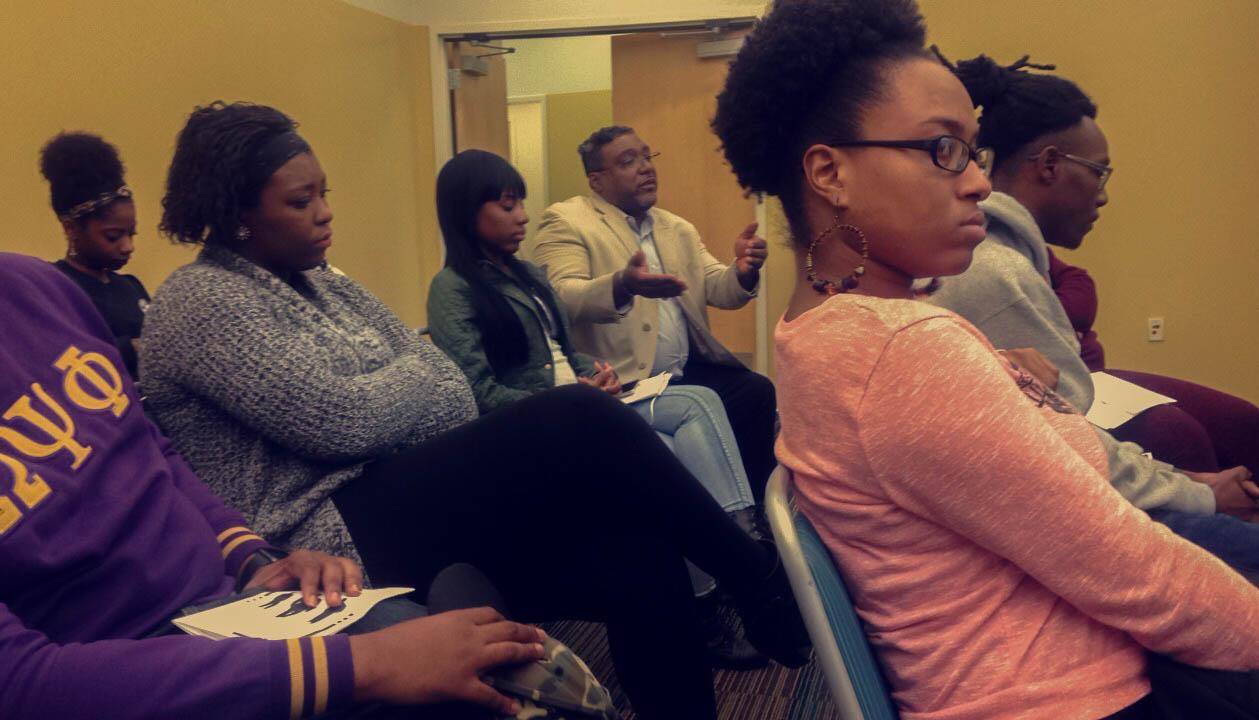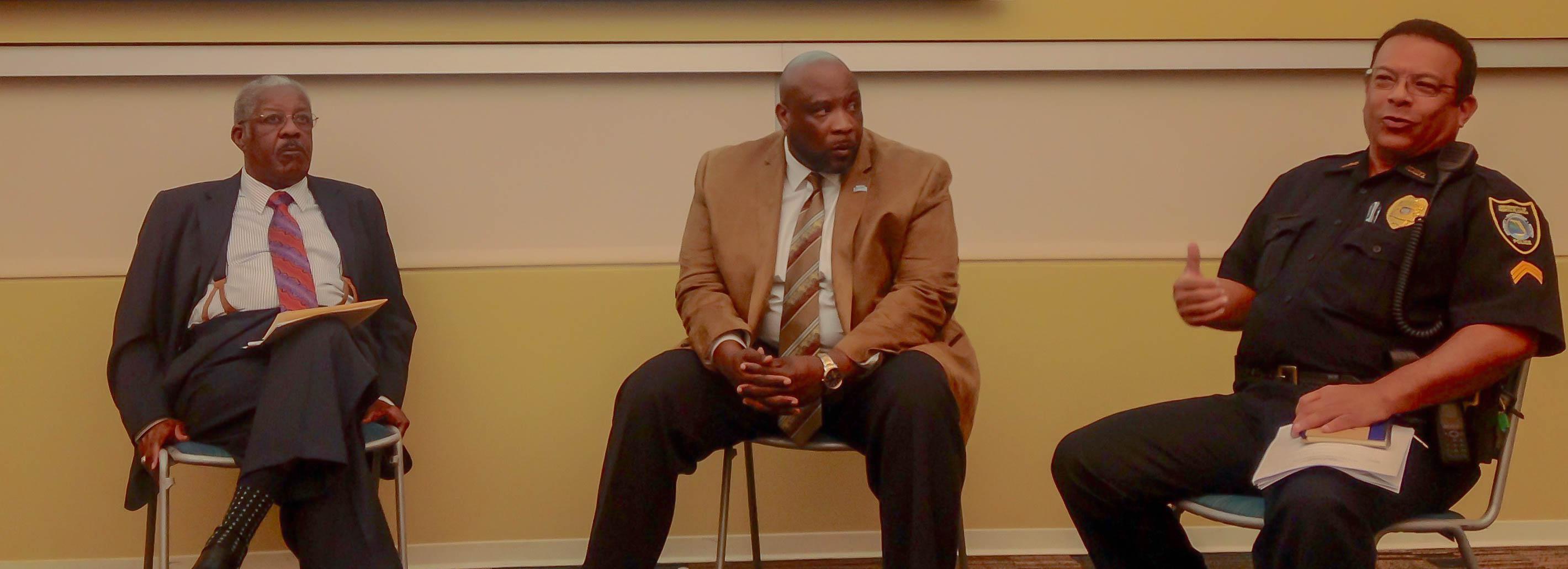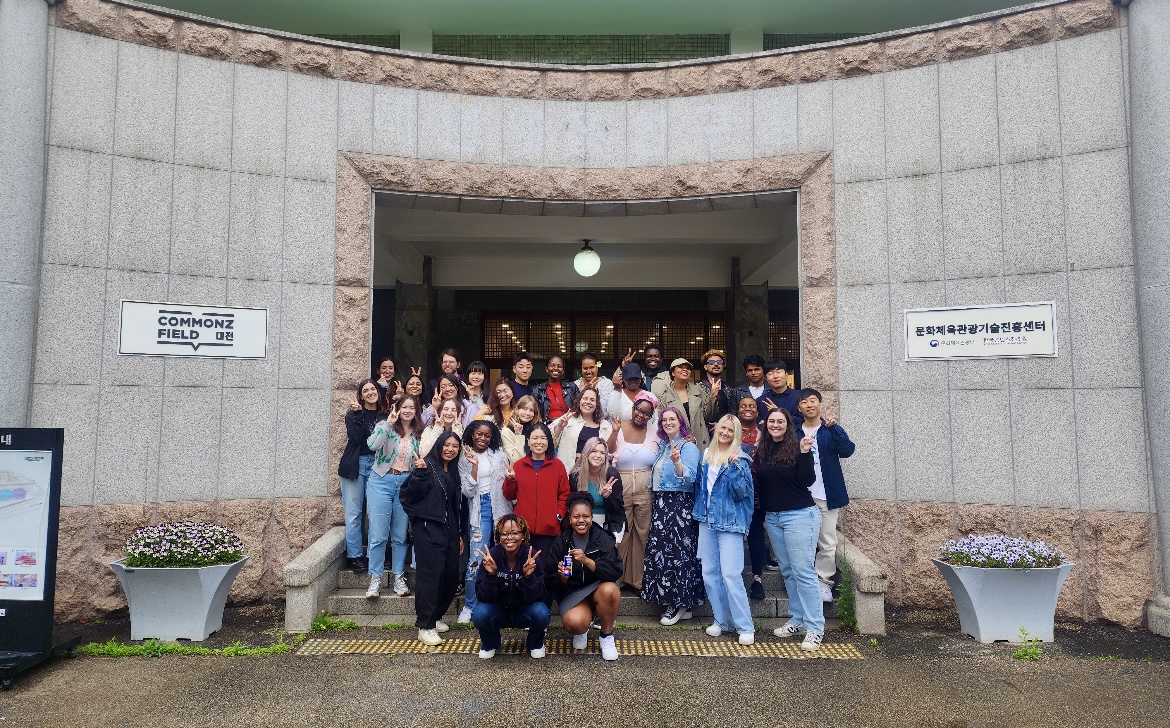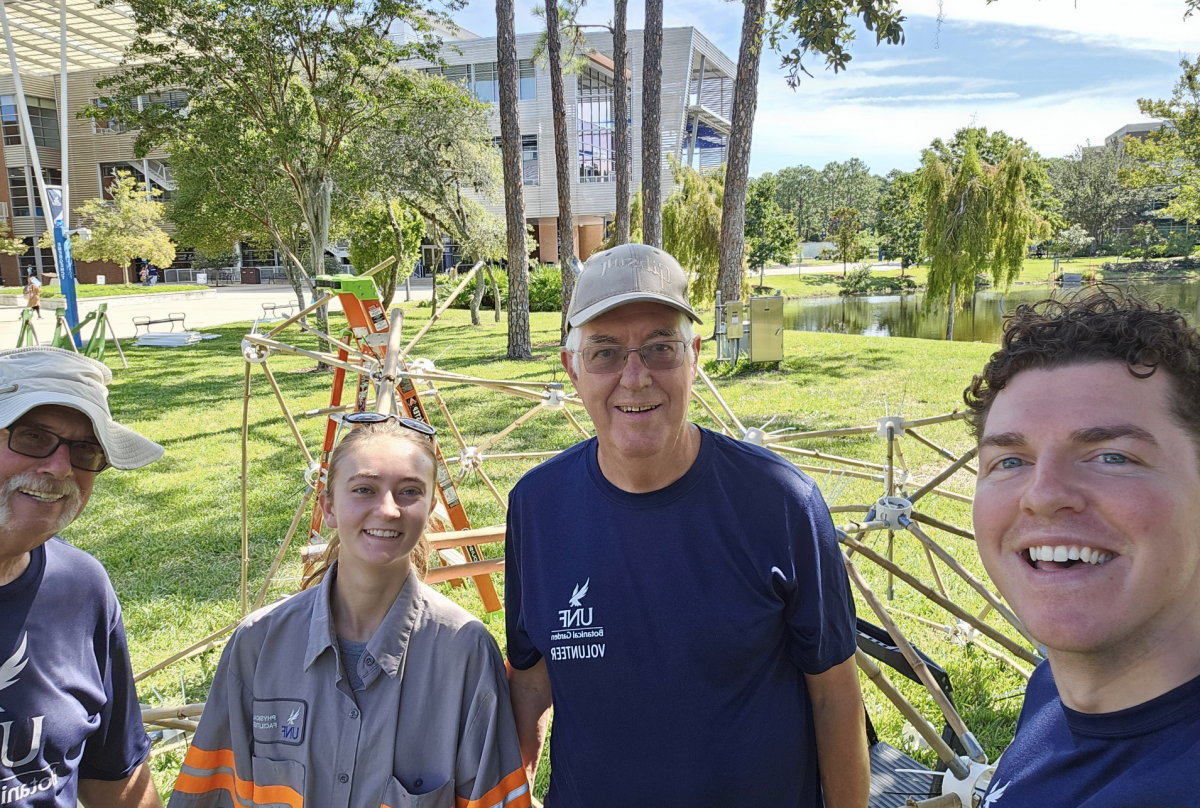
Three African-American leaders talked with UNF students about the benefits of mentoring in overall education and the effect of slavery in black’s people development.
“Mentoring doesn’t always have to be about education,” said Lewis.
The newly opened Black Student Union along the Women’s Center brought Black Men of Influence back to campus for the fifth time on Jan. 30.
The event focused on discussing the challenges and the journey they have come through in order to achieve leadership positions within their communities. The talk is part of the annual panel series hosted by the Women’s Center under the name Inroads to Influence.
Department of Diversity Initiatives director, Sheila Spivey, started the event greeting everyone.“We have a social obligation to impact right here and right now,” Spivey said.
Spivey invited people to stay until the end of the conversation to enjoy free snacks, such as cheeses and cookies, and beverages, such as water and soda.
The discussion started calmly but then the tension increased as the attendants and speakers brought more delicate topics, such the effects of the slavery years to the black community.

The panel was made up of UNF’s senior Associate Athletic Director, Erwin Lewis, the president of the Jacksonville’s National Association for the Advancement of Colored People, Isaiah Rumlin, and UPD Sgt. Michael Sams.
Lewis’ leadership has included overseeing the budget and operations regarding all men’s sports on campus. Rumlin has led protests opposing police brutality and promoting movements such as the “Stop the Violence” march. At the same time, since 2011, Sams has mentored young men through the Big Brothers and Big Sisters program, besides working for UPD.
Lewis started the panel by talking about the difference between knowledge and education. He explained that parents are the first one to teach any knowledge to their kids, so they must inspire them into pursue a higher education in the future.
“Mentoring doesn’t always have to be about [academic] education. But kids whose parents went to college, tend to go to college as well,” Lewis said.
Following the same idea, Rumlin said parents have the responsibility of inspire their kids to pursue a better future for themselves. “Your parents need to mentor you,” Rumlin concluded.
Even though he recognized the benefits of higher education, he believes it doesn’t determine your success. “You don’t need a degree to make your own business.” said Rumlin.
Sams agreed mentoring has a beneficial impact for a young person’s mind. He also believes parents are sometimes unfit to perform the mentor role.
“Some parents cannot mentor. It’s hard for parents to mentor if they don’t have educational background,” Sams explained.
He also brought up that the legacy of so many generations in slavery still has its repercussion into today’s society.
After their presentations, Spivey officially started the Q&A session with the panelists. Attendants, who were mostly African-American students, asked the speakers some questions but mostly debated their points of view with them.
One UNF student, for example, agreed with Sgt. saying that indeed slavery still affects the black community as a whole. On the other hand, Rumlin disagreed saying that “slavery happened 200 years” and “we got to stop making excuses.”
However, other students believe the black community is headed to great future opportunities.
“We’re so about shortcuts, but it takes growth and it takes time to succeed,” said a female UNF student at the end of the talk.
—
For more information or news tips, or if you see an error in this story or have any compliments or concerns, contact editor@unfspinnaker.com.












Todd Elliott Koger | Feb 4, 2017 at 1:56 pm
In August 2016, Todd Elliott Koger submitted “a plan to target the black vote and foundation of the Democratic Party’s “voter’s turnout model” to change the destructive conversation that the “verbal fight” Mr. Trump was having with Khizr Khan, a slain U.S. soldier’s father had caused. President Trump’s verbatim use of Mr. Koger’s words in “online video” and speeches that followed in Michigan, Milwaukee (Wisconsin) and Pennsylvania changed to course of his campaign and put it on track for victory.
But also . . . In Oct. 2016 when the Trump campaign was on “life support” as a result of the “open mic incident” and everyone had abandoned Mr. Trump . . . When the media started writing the Trump campaign’s eulogy, Todd Elliott Koger drafted a new writing. A “job-driven” proposal for ending the black homicide epidemic in American Cities and submitted it as a “Treaty with Black America.” Mr. Koger advised the campaign that a “new” writing was needed to change the conversation again. Mr. Koger suggested that the campaign repackage the information, but get it out immediately.
The Trump campaign it appears did renamed Mr. Koger’s “new” writing and repackaged it to now target the poor white voters of Appalachia (“Contract with the America’s Voter”) and America’s inner cities (“New Deal for Black America”).
What Mr. Koger proposed in that October 2016 writing was a legitimate proposal with provision for intensive, wrap around holistic case management, high level occupational training, and a clear path to employment. With outreach systems, processes, and local partners Mr. Koger proposal was a needed answer for black neighborhoods. The objective of Mr. Koger’s proposal: To demolish inner city blight and rebuild America’s black neighborhoods one street at a time, using the labor of neighborhood boys and girls. The Chicago Tribune, CNN, New York Times, Washington Post and others have a copy of Mr. Koger’s proposal but haven’t written anything about it. WHY?
Black neighborhoods continued to be plagued with gun violence, black homicide, and decay, often exemplified with streets of run-down and abandoned housing. Creation of affordable housing represents a major step toward a stable society. Mr. Koger’s proposal to Mr. Trump would empower America’s inner city residents with job readiness skills and a plan for their future. It will teach good character and citizenship, and how to live healthy new lifestyles. Mr. Koger’s proposal is a realistic plan to serve the hard to reach and marginalized that society has identified as in need of quality, affordable opportunities. SOMETHING THE MEDIA WON’T TALK ABOUT?
What Mr. Koger asked President Trump to do is redevelop America’s black neighborhoods by making capital investment in “new” housing. He proposed comprehensive intervention services to encourage troubled black youth to learn and have fun in a safe, positive environment where they can gain basic education competencies, develop jobs skills, and build positive relationships. The proposal even included provision for critical one-on-one attention for struggling black youth to reduce the frequency and severity of neighborhood youth involvement in the justice system and improve long-term life options. HOW COME MR. KOGER’S PROPOSAL FOR BLACK AMERICA AND ITS INVOLVEMENT WITH THE TRUMP CAMPAIGN ISN’T NEWS?
For black boys and girls to contribute to the nurturing of their neighborhoods the facets of job training and economic development pedagogy must allow the locus of power and control of the program to remain in the hands of the local residents. Programs that come together through a neighborhood’s own initiative are organic and have the capacity to make change. Macro theories in the fields of political-economics and comparative education, accentuates the underpinnings supporting this “capability approach” to ending gun violence. AND, THIS IS THE REASON NO ONE WILL TALK ABOUT MR. KOGER’S PROPOSAL. THOSE OF US WHO LIVE IN THE INNER CITY ARE TAKEN FOR GRANTED.
In conclusion, Todd Elliott Koger’s “Treaty with Black America” in its original draft is a proposal to help black boys and girls better understand their “capability to do things.” Rebuilding their own neighborhoods and the houses they “should own and live in” will help them understand their worth and value. How black youth believe they are viewed (as clients, participants, or “the agents of change”) determines the success of their efforts. Creating a “commonality interest” and ensuring a “living wage” to sustain their families, is proposed “TO LOWER THE BODY COUNT” PASTOR DARRELL SCOTT!!!